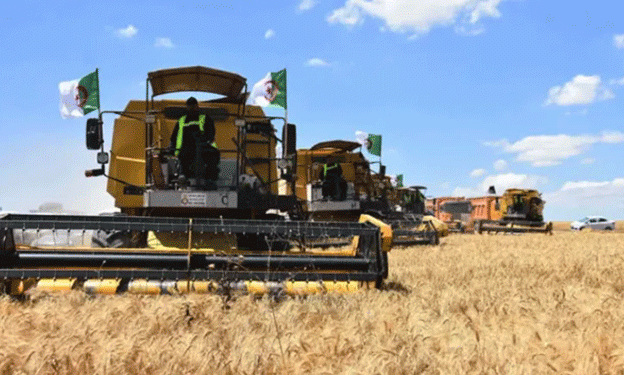France expresses apprehension as Algeria and Italy embark on significant agricultural collaborations, potentially reshaping North African wheat production and impacting France’s traditional export markets.
Recent developments in North Africa’s agricultural landscape have sparked notable concern within French political and economic circles. Algeria and Italy have solidified a partnership aimed at bolstering Algeria’s domestic wheat production, a move that could significantly alter traditional trade dynamics and diminish France’s longstanding influence in the region.
Algerian-Italian Agricultural Initiatives
In July 2024, Algeria and Italy signed a €420 million agreement to develop an integrated project focusing on grain, legume, and pasta production in Algeria’s southern province of Timimoun. This ambitious project encompasses 36,000 hectares dedicated to cultivating wheat, lentils, dried beans, soybeans, and chickpeas. Beyond cultivation, the initiative includes establishing processing units for pasta manufacturing and constructing storage silos, with projections to create over 6,700 jobs. This collaboration aligns with Algeria’s strategic objective to expand its southern agricultural areas to 500,000 hectares, thereby enhancing food security and reducing reliance on imports.
French Apprehensions
The deepening Algerian-Italian ties have not gone unnoticed in France. During a French Senate debate on February 12, 2025, Senator Akli Mellouli highlighted concerns regarding Italy’s substantial investments in Algeria’s agricultural sector. He emphasized that Italy’s involvement, particularly in developing 36,000 hectares for wheat production, could enable Algeria to achieve self-sufficiency. This shift may lead to a significant reduction in Algeria’s wheat imports from France, thereby impacting French agricultural exports. Mellouli cautioned that if France does not adapt to these evolving dynamics, it risks further isolation, especially amid existing diplomatic tensions with Algeria.
Declining French Wheat Exports
France’s concerns are further compounded by a marked decline in its wheat exports to Algeria. Data indicates that the value of French wheat exports to Algeria plummeted from €834 million in 2022 to approximately €166 million in 2023. This sharp decrease is attributed to Algeria’s strategic decision to diversify its wheat import sources, favoring alternatives such as Russian wheat, which is often more competitively priced and nutritionally advantageous. This trend reflects Algeria’s broader strategy to reduce dependence on French wheat, influenced by both economic considerations and diplomatic strains between the two nations.
The burgeoning agricultural partnership between Algeria and Italy signifies a pivotal shift in North Africa’s agri-economic landscape. As Algeria moves towards agricultural self-sufficiency with Italian collaboration, France faces the challenge of reassessing its role and strategies within this evolving context. To maintain its influence and economic interests in the region, France may need to engage in proactive diplomatic efforts and explore new avenues for cooperation that align with the changing dynamics of North African agriculture.
Error




